Former President Olusegun Obasanjo has called for the removal of Mahmood Yakubu, Chairman of the Independent National Electoral Commission (INEC), along with officials across all levels of the commission, as part of comprehensive electoral reforms in Nigeria.
Obasanjo made this appeal in a paper he presented at the Chinua Achebe Leadership Forum held at Yale University in the United States. The annual lecture commemorates the legacy of Chinua Achebe, the renowned Nigerian author.
In a pre-recorded address titled “Leadership Failure and State Capture in Nigeria” that was played at the event, Obasanjo criticized the 2023 general election, labeling it a “travesty.”
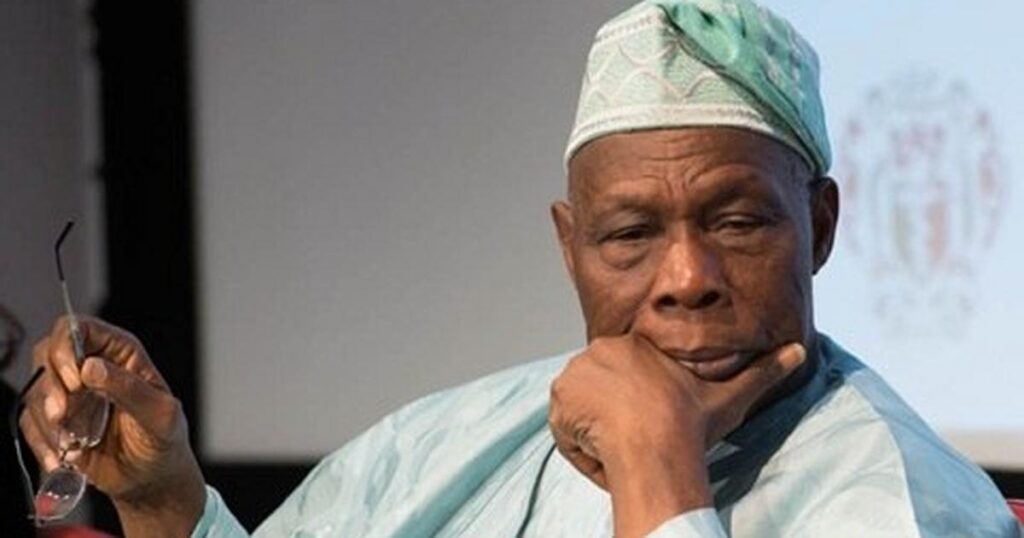
He emphasized that reforming the electoral process remains a critical priority for the nation’s progress.
“As a matter of urgency, we must ensure the INEC Chairperson and their staff are thoroughly vetted. The vetting exercise should produce dispassionate, non-partisan actors with impeccable reputations.
“Nigeria must ensure the appointment of new credible INEC leadership at the federal, state, local government, and municipal – city, town, and village – levels, with short tenures to prevent undesirable political influence and corruption, and to re-establish trust in the electoral system by its citizens,” he said.
He argued that “The INEC Chairperson must not only be absolutely above board but must also be transparently independent and incorruptible.”
Mr. Obasanjo stated that the commission deliberately neglected to use two key technological tools available to it—the Bimodal Voter Accreditation System (BVAS) and the INEC Election Result Viewing Portal (IReV)—during the 2023 presidential election, despite assurances from Mr. Yakubu.
“The BVAS and IReV are two technological innovations that, prior to 2023, were celebrated for their potential to enhance the accuracy and transparency of our election results, eliminate the threat of election rigging, and boost public trust in electoral outcomes.
“These technologies were touted by the INEC chairman himself. In the end, these technologies did not fail. INEC wilfully failed to use or implement them, which resulted in widespread voting irregularities. It was a case of inviting the fox into the henhouse,” he said.
INEC has faced significant criticism following the last general elections, particularly over the failure of its IReV platform during the presidential polls, which the commission attributed to a technical glitch.
The IReV platform became central to post-election litigation, though these cases were ultimately dismissed by both the Presidential Election Petition Tribunal and the Supreme Court.
A special report by PREMIUM TIMES revealed that Peter Obi, the Labour Party’s presidential candidate, won the election in Rivers State based on IReV data. However, INEC declared President Bola Tinubu the winner in the state.
Former President Olusegun Obasanjo, a supporter of Mr. Obi during the election, criticized the collation of results, calling for the cancellation of outcomes that failed to meet the “credibility and transparency test.”
His appeal to the then-president to halt the collation process drew widespread criticism.
INEC has also been under fire for its handling of the Edo State off-cycle governorship election and for appointing individuals with partisan affiliations to key leadership roles. PREMIUM TIMES has previously reported on instances of partisan appointees being named as Resident Electoral Commissioners.
In the most recent appointments by President Tinubu, four nominees were linked to the ruling All Progressives Congress (APC).
While Mr. Obasanjo has advocated strongly for electoral reform, his own record on election integrity during his presidency remains questionable.
The 2003 and 2007 elections conducted under his administration were widely condemned by both local and international observers as among the worst in Nigeria’s history.
The winner of the 2007 presidential election, Umaru Musa Yar’Adua, admitted the flaws in the process and initiated electoral reforms, though he passed away in 2010 before completing them. His successor, Goodluck Jonathan, continued these reforms.
INEC’s current chairman, Mahmood Yakubu, was appointed by former President Muhammadu Buhari in 2015 and reappointed in 2020. His tenure is set to expire next year.
PREMIUM TIMES reached out to INEC spokesperson Sam Olumekun for comments on Mr. Obasanjo’s recent remarks, but he did not respond to calls or text messages.
Cajetan Iheka, head of the Yale Africa Initiative, highlighted that some questions raised in Chinua Achebe’s book The Trouble with Nigeria remain pertinent today. He emphasized the need for intellectuals to move beyond posing questions and start offering actionable solutions.
“Ours is thus an intellectual exercise but also a socio-political project. As we deliberate, let us heed Achebe’s demand that we take a hard and unsentimental look at the crucial question of leadership and political power. But we must also do so with civility and respect—the kind of civility and respect that Achebe modelled and commanded with his grace and dignity.
“To that end, how do we discuss and tackle leadership in Africa without involving those who have had the privilege of leading and those who aspire to lead? We are thus grateful to their excellencies and other distinguished guests who have travelled to engage with us today,” he added.
Aside from Mr Obasanjo, other Nigerians present at the event included Peter Obi, the Governor of Abia State, Alex Otti, and former Minister Oby Ezekwesili.
Mr Obi participated in two different panel sessions: a discussion on “Leadership and Democracy in Africa” and “Intergenerational Panel: Young People and the Future of Leadership in Africa”.
(Premium Times)
Follow the Parallel Facts channel on WhatsApp: https://whatsapp.com/channel/0029VaCQSAoHgZWiDjR3Kn2E




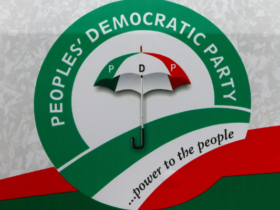
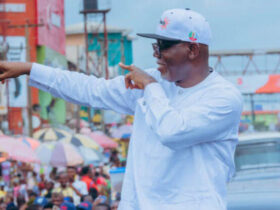
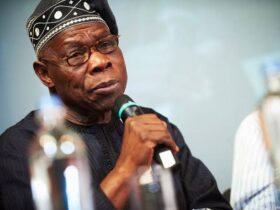
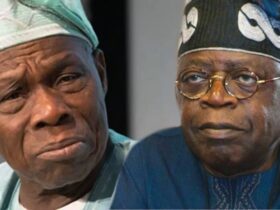
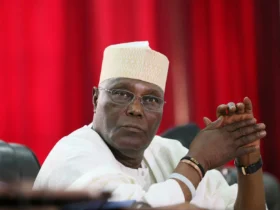
Leave a Reply